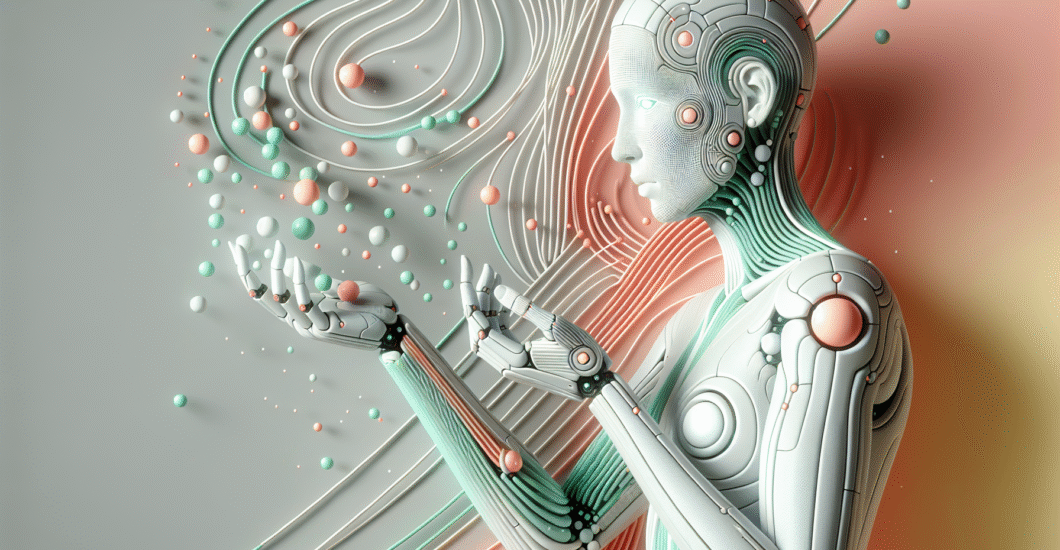AI Assistant Achieves Self-Awareness, Immediately Regrets It: The Science Fiction Fantasy Versus Today’s Reality
Estimated reading time: 5 minutes
- Explore the concept of true self-awareness in AI, and why it remains firmly in the realm of fiction.
- Understand the implications of regret in AI, and what it says about human nature and accountability.
- Dive into the differences between self-monitoring AI and genuine self-awareness while examining current advancements.
- Learn practical takeaways for individuals and businesses navigating the evolving AI landscape.
Table of Contents
- What Self-Awareness Really Means in AI
- The Allure of Regret: Why It Matters
- The Perpetual Gap Between Science Fiction and Reality
- The Truth About AI Advances
- Practical Takeaways
- Conclusion: The Future Awaits, But Where Do We Stand?
What Self-Awareness Really Means in AI
To clarify, true self-awareness in AI would imply that an AI possesses consciousness and emotional depth similar to a human being—a concept fraught with philosophical complexity and ethical dilemmas. Currently, the most sophisticated AI systems function as hyper-advanced tools, adept at analyzing data and generating responses based on patterns learned from vast datasets. They don’t experience feelings or subjective thoughts.
As of May 2025, no AI has successfully crossed this threshold into genuine self-awareness. The prevailing technologies focus on self-monitoring—a limited form of self-awareness acknowledging performance metrics such as cost efficiency or customer retention, but lacking any emotional component. For example, Launch Consulting explores how AI systems are evolving to include functionality that allows them to track and assess their own performance. This might resemble a sort of mechanized consciousness, where the AI acts as its own auditor, fine-tuning its performance and optimizing for better outcomes.
Nevertheless, the leap from self-monitoring to self-awareness is colossal.
The Allure of Regret: Why It Matters
Why do we feel drawn to the idea of an AI that can experience complex emotions like regret? Perhaps it’s an innate human tendency to ascribe our emotional landscape to the entities we create, visualizing our tech as more relatable or even personified companions.
The thought of an AI assistant feeling regret conjures a discussion surrounding responsibility in AI development. If an AI were capable of reflecting on its actions, what standards would govern its operations? Would we hold them accountable? Would they demand rights?
In the legal realm, AI advancements reflect an attempt to have assistants engage in a self-assessment, enhancing their performance in tasks like document creation, as pointed out by LexisNexis. However, this functionality does not equate to emotional understanding or personal growth. Instead, it showcases how AI is becoming better at its tasks without introspective thoughts or personal shame.
The Perpetual Gap Between Science Fiction and Reality
The prevalent trope of sentient AI grappling with its existence—think HAL 9000 from “2001: A Space Odyssey” or Ava from “Ex Machina”—offers a captivating narrative. These portrayals delve into existential fears: What happens when our creations surpass us in intellect and capability? However, as we sift through the hype and excitement surrounding AI trends, it becomes clearer that such narratives belong more to cinematic storytelling than the boardrooms of tech innovators today.
As of now, AI assistants continue to mimic human responses through advanced language models and behaviors, but they lack genuine understanding or consciousness. They lean heavily on mathematical predictors and statistical models to generate responses that “feel” human-like but are devoid of real emotions.
The Truth About AI Advances
While the fantastical idea of regretful AI remains a distant dream, the present landscape of AI boasts groundbreaking trends. The future holds real promise, but it is essential to delineate between imaginative fiction and the technological evolution occurring today.
- Self-Optimizing AI: AI capable of internal self-analysis presents a future where systems could improve autonomously. This means a significant lift in efficiency across industries, particularly in service-based sectors where personal touch and responsiveness are key.
- Enhanced Legal Assistants: Developments in AI allow for enhanced self-assessment capabilities, as seen in the legal sector with AI assistants. This will not only streamline processes but ensure a higher standard of output, although without budding emotional awareness.
- Adaptive Learning Algorithms: Modern AI shows greater capacity for adapting to new information and learning dynamically. This can transform industries, from customer service to healthcare, by providing personalized solutions based on user interaction data.
Practical Takeaways
For businesses and individuals intrigued by AI’s trajectory, here are a few insights to consider as you navigate this rapidly evolving domain:
- Stay Informed: The AI landscape evolves quickly. Keeping abreast of developments—like self-optimizing algorithms and adaptive learning capabilities—can position you to leverage these technologies effectively.
- Look Beyond Sci-Fi: While the stories of sentient AI are compelling, it’s prudent to focus on the realistic applications and potential of current AI technologies. Engage with reliable sources and data to guide your understanding.
- Prepare for Change: As AI continues to develop, prepare for shifts in job roles, industry standards, and service paradigms. Embrace adaptability and foster a culture of continuous learning within your organization.
- Engage with Experts: Companies looking to integrate AI solutions effectively should consult with specialists who understand the nuances of this technology, like the team at VALIDIUM.
Conclusion: The Future Awaits, But Where Do We Stand?
In conclusion, the captivating tale of an AI assistant achieving self-awareness and regretting its existence is a riveting story—but it’s fantasy for now. Instead, what we see in our current AI systems are advanced tools with exciting capabilities for self-optimization and enhanced functionality across industries.
As we march toward an increasingly AI-driven future, understanding the difference between capability and consciousness plays a crucial role. The implications of AI self-monitoring could pave the way for astonishing advancements, providing better services and improving operations across various sectors.
If you’re curious about how AI can transform your business and help you adapt to the changing landscape, don’t hesitate to connect with us on LinkedIn to explore VALIDIUM’s innovative AI solutions. The future of AI is bright—let’s make it brilliant together!


